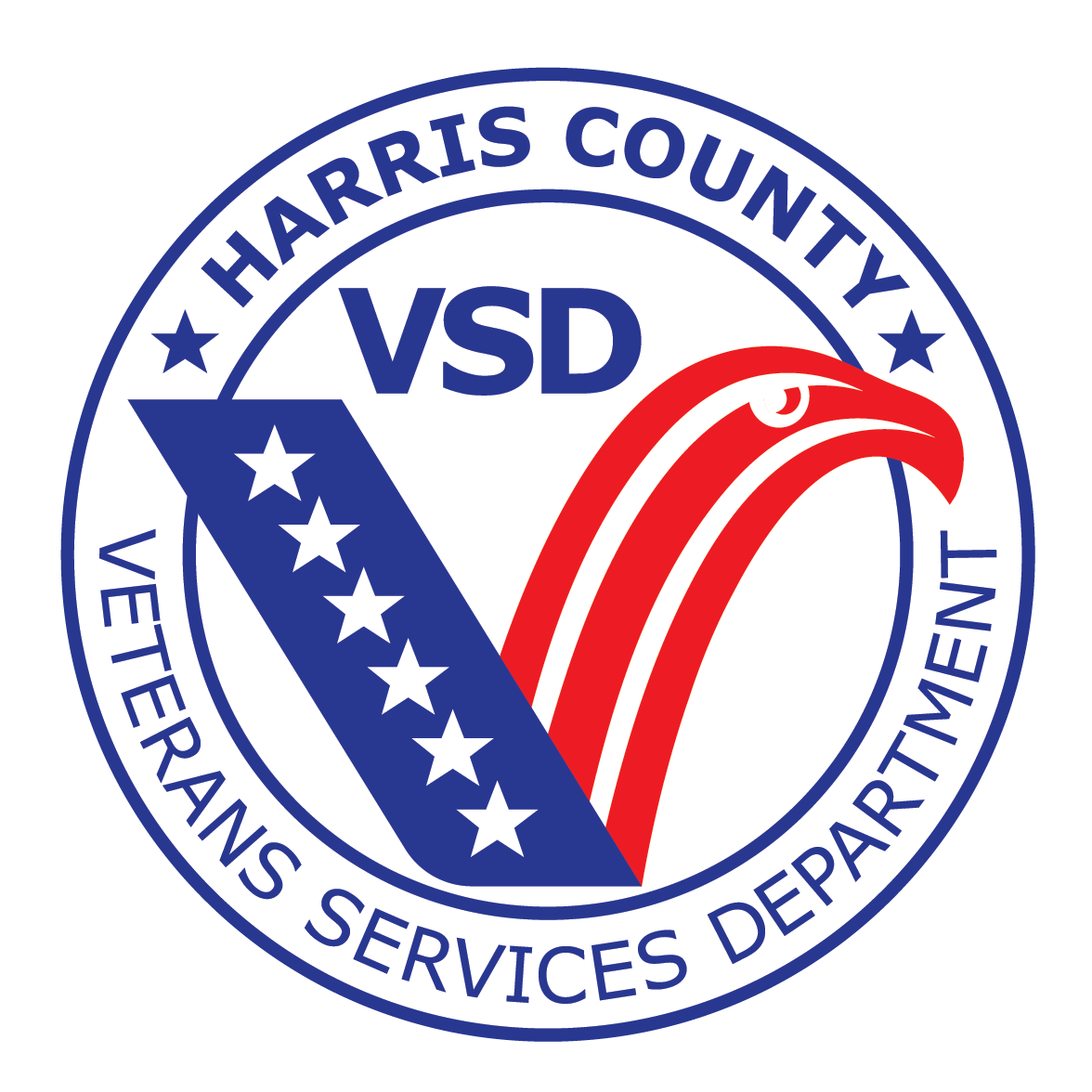LEAVING THE BATTLEFIELD BUT NOT THE BATTLE
Struggling vets get second chance with Harris County Misdemeanor Veterans Treatment Court
November 2021
Original article by Harris County Courts | Misdemeanor Veterans Treatment Court
Jacob Brinkley didn’t have a substance abuse problem. The 39-year-old Army veteran was just doing what he
had to do to keep the nightmares at bay. At least that’s what he told himself.
After 12 years in the military, including two tours in Iraq, memories haunted Brinkley. The time he was shot in the leg. The 14-year-old boy he killed. Learning his estranged, drug-addicted wife had murdered his young son and then killed herself.
Brinkley was more than a decade into his 16-year addiction before he realized he was no longer just dulling the pain. He was shooting meth because he enjoyed the high.
His wake-up call happened earlier this year. He was behind the wheel, passed on out Xanax, when he ran into a police car. It was the lawyer he’d hired to help handle his case, he said, who first told him about a special treatment court for vets.
“I did it just to keep my butt out of jail. I wasn’t planning to stick with it,” he said. “It saved my life. I went in thinking I’d get my hands on some bleach and I was done. I didn’t see a way out of my addiction.”
Brinkley is one of 19 veterans currently participating in Harris County’s Misdemeanor Veterans Treatment Court.
Launched in 2015, the court aims to provide a second chance for veterans suffering long-lasting effects from their time in combat.
The application process is intensive. Veterans must undergo a comprehensive mental health assessment conducted by the Department of Veterans Affairs and be diagnosed with a mental health disorder or substance abuse issue related to their military service. They also must submit their military discharge status, offense explanation, resume, and non-family recommendations. On top of that, they must commit to sobriety.
The court works hand-in-hand with the VA to provide a highly structured, four-phase treatment program focused on accountability. And it boasts an impressive 96 percent graduation rate — well above the 50 percent national average, according to a recent study by the Criminal Justice and Social Work department at the University of Houston Downtown.
“It’s great to give back in this way to the veterans,” said Presiding Judge Erica Hughes, herself a former Army JAG officer. “I have a special place in my heart for these folks.”
It’s great to give back in this way to the veterans… I have a special place in my heart for these folks.”
-Judge Erica Hughes,
Former US Army JAG officer
THE MOST IMPORTANT RELATIONSHIP
During the first phase of the program, veterans go before the court every two weeks. Before each docket, Hughes meets with a support team of caseworkers and attorneys to review progress and setbacks. She then meets with each veteran individually.
While traditional court can sometimes feel adversarial, Misdemeanor Veterans Treatment Court is the opposite. Hughes takes off her robe and comes down off the bench to speak with the vets on their level. She congratulates them on their success, asks about their families, and cheerfully peers at pictures of their kids.
It’s that connection between judge and veteran that makes the program so successful, Office of Court Management Special Programs Manager Raymie Hairell said. Hairell helped establish Misdemeanor Veterans Treatment Court in Harris County.
“It’s a very different feel to court,” Hairell said. “You hear clients say, ‘Someone actually cares about me’ or ‘I actually completed something.’”
Access to healthcare and treatment is expedited through the court’s partnership with the VA, allowing participants to bypass the organization’s notoriously long wait times. VA caseworkers provide regular updates to the court.
The court also requires veterans connect with Combined Arms, a Houston-based non-profit organization that helps veterans transition to civilian life.
“It’s very holistic,” said Michelle Barnett, a veteran who serves as program coordinator for both the Misdemeanor Veterans Treatment Court and the Felony Veterans Treatment Court, the latter established in 2009. “Any need they have, we’re going to do whatever we can to help them with that.”
‘IT CHANGED ME’
When Michael Ray first joined Misdemeanor Veterans Treatment Court, he viewed it as a means to an end.
The 70-year-old Marine Corps veteran said he was arrested in 2019 while driving home after drinking at the VFW. He was accepted into the program the following year.
The program was so intensive and time-consuming, he said he sometimes wondered if he should have opted for standard probation. After all, he said, everyone drinks — you’re constantly encouraged by society and you’re “practically shunned” if you don’t in the military. But he kept reminding himself: “I’m the reason I’m here.”
Slowly, his perceptive began to shift.
“When I look back, what a difference it made in my life,” said Ray, who graduated in October. “If you work the program, it works.”
Ray said he now understands he was a high-functioning alcoholic, impacted by his time in combat, which included a tunnel explosion in Vietnam that left him trapped for four hours and led to his claustrophobia.
The program didn’t eliminate his PTSD and depression, but it did change how he reacts to them, he said. Now, rather than go for a beer, he goes for a jog. He keeps a list of similar strategies — take a breath, go outside — in his wallet should he ever find himself in need of a reminder.
“It changed me entirely,” Ray said. “It has taught me to be the real person inside me that I was covering up with alcohol.”
FUN DOCKET
Standing under a large pavilion at North Shore Park in East Harris County, Hughes welcomed the dozens of veterans gathered before her and encouraged them to partake in the catered lunch and play a few rounds of corn hole and tug of war.
Normally, the group is corralled in an online waiting room, chatting with each other as they wait for their virtual court appearance. But once a year, they come together for “Fun Docket” — a chance to share food and fellowship and celebrate their progress and successes.
This year marked the first time the misdemeanor and felony courts joined forces for the event, which featured a musical medley of military anthems in honor of Veterans Day and a cake cutting ceremony commemorating the Marine Corps’ birthday.
Hughes and court staff also recognized two veterans graduating from misdemeanor court and two more promoting to advanced phases.
Standing at the rear of the pavilion after the ceremony, the judge offered warm greetings to veterans as they passed by. Brinkley was among them, stopping to rattle off a list of his accomplishments and thank the judge for her role in his success.
“Keep up the good work,” Hughes said, a wide smile spread across her face. “I’m so proud. I remember where we started.”
Elected in 2018 as the presiding judge for Harris County Court at Law No. 3, Hughes said she jumped at the chance to preside over Misdemeanor Veterans Treatment Court. A veteran herself, she knows first-hand the trauma and mental anguish experienced by men and women who serve overseas. She also knows the dearth of support available to them when they return.
“I know their story, where they come from,” Hughes said of the personal connection she makes with each veteran. “It’s my favorite part of this job, helping people get back on track and seeing their physical changes.”
“SOMETHING TO LIVE FOR”
Upon his acceptance in to Misdemeanor Veterans Treatment Court, Brinkley promptly failed his first 13 urine tests, shining a bright light on his substance abuse problems.
Rather than send him to jail, he said the court helped him get into Starlight Recovery Center in Central Texas, where he underwent a form of light therapy — Eye Movement Desensitization and Reprocessing — to help him relabel and reorganize his traumatic battlefield memories.
Initially enrolled in a 30-day program, Brinkley stayed voluntarily for 120 days, eventually becoming a meeting leader and reestablishing an LGBTQ+ mentorship group before he left.
Once homeless, Brinkley said he now lives in a sober home, passes his urine tests, and seeks proactive care and treatment for his HIV diagnosis. Though not required, he also signed up for an eight-week intensive therapy program at the Montrose Center, which offers community support to Houston’s LGBTQ+ community.
“It keeps me accountable,” Brinkley said. “There are other vets who have walked this with me.”
While in rehab this summer, Brinkley said he made a vision board, setting “small goals” — finding serenity, reestablishing a relationship with his sisters, being around dogs, and forgiving his father for murdering his mother when he was just 8, forcing him into foster care where he was sexually abused.
He’s since reconnected virtually with his sisters and started a new job as kennel master of a daycare, boarding, and grooming facility for dogs, he said, proudly showing off a photo of the pups in his care. He’s also reestablished his relationship with God and learned to love himself.
Six months into the program, Brinkley said he has no doubt that Misdemeanor Veterans Treatment Court saved his life.
“I have something to live for today,” Brinkley said, explaining that he now struggles to understand how he ever got to such a dark place. “I don’t know how I got there. I don’t want to get back there.”
Original file <Link> Harris County Courts Website <Link>
For more information about Misdemeanor Veterans Treatment Court, contact Harris County Courts Office of Court Management Special
Programs Manager Raymie Hairell (Raymie_Hairell@ccl.hctx.net) or Communications Director Holly Huffman (Holly_Huffman@ccl.hctx.net).



